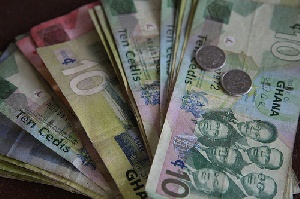It has been uncovered that the country suffered huge financial losses in 2011 as a result of multiple instances of monetary malpractices, irregularities and outright embezzlement by officials at government’s Ministries, Departments and Agencies (MDAs).
Such financial malfeasance caused the taxpayers’ purse and national kitty a colossal amount of over GH¢2billion during the year under review.
The damning revelation was contained in the report of the Auditor-General on the “Public Accounts of Ghana-Public Boards, Corporations and other Statutory Institutions” for the year ended 31 December, 2011.
The report, DAILY GUIDE learnt, was presented to Parliament for its oversight scrutiny; but had not yet been officially laid before the House for consideration.
Out of a total of GH¢2,067,745,512 monetary irregularities, which the report captured, a significant amount of GH¢1,965,052,672 was as a result of cash irregularities including cash shortages, misappropriation of funds, embezzlement, payments not authenticated and un-credited bank lodgments.
Consequently, Auditor-General Richard Q. Quartey advised “boards and management of public boards, corporations and other statutory institutions to improve the control environment including the establishment and effective operation of internal audit units and enhance the supervision over accounting staff to minimize these irregularities.”
There were also outstanding debts/loans/recovery charges amounting to GH¢99,170,464 in the audited report.
According to the report, the amount mostly represented outstanding trade debtors resulting from ineffective debt management system put in place by the organisations to promptly collect debts when they fall due.
“Also, some relate to staff debtors and outstanding loans due to non adherence to conditions, rules and regulations pertaining to staff debtors/loans”, the report added. The Auditor-General again recommended that management of Public Boards, Corporations and other statutory institutions should put in place adequate mechanisms towards debt recovery to ensure prompt recoveries on due dates in order to mitigate or avoid the incurrence of bad debts.
Payroll irregularities in the report amounted to GH¢1,795,607.
These irregularities, the report explained, mostly included the non-deletion of separated staff from payroll after their termination dates and that “this was due to lack of coordination between the Accounts office and the various administration Heads as a result of which their names continued to appear of the payroll.”
Others included tax irregularities amounting to GH¢303,596, which was caused by the failure of finance officers to diligently act in accordance with the statutory tax laws.
This, according to the report, resulted in non-deduction of withholding tax, and delay in the payment of withholding tax to Domestic Tax Revenue Division (DTRD) of the Ghana Revenue Authority (GRA).
Also related to the irregularities were the purchases from non VAT registered sources, failure to obtain VAT invoices/receipts from suppliers and outstanding VAT not remitted to the VAT office.
“In some cases, outstanding Social Security deductions and tax revenue were used by some of these organisations to meet their operations,” the report disclosed.
Furthermore, contract/procurement irregularities amounted to GH¢1,423,173. “These irregularities mostly related to non-installation of equipment purchased and outstanding mobilization advance due to non-adherence to the relevant provisions in the Public Procurement Act, 2000 (ACT 663),” the report pointed out.
It added that lack of supervisory control over procurement and contract management was the main contributory factor to this worrying phenomenon.
General News of Tuesday, 2 July 2013
Source: Daily Guide

















